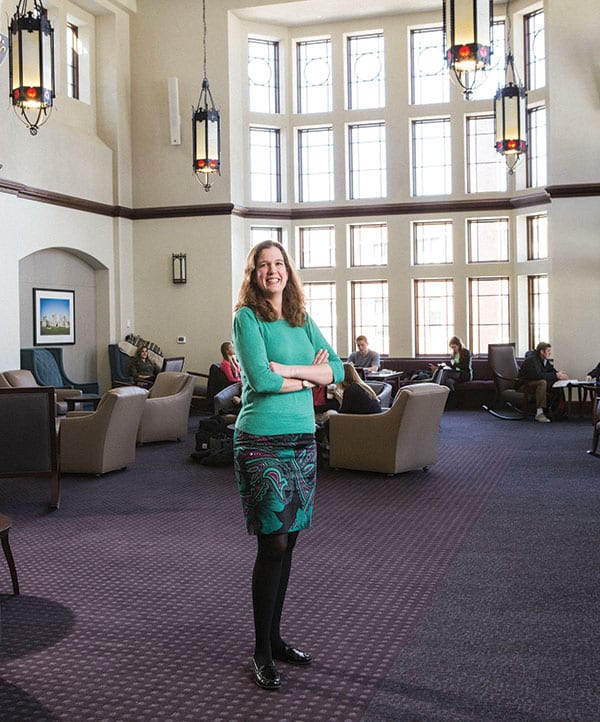May 13, 2014
‘Tackling’ Western Civilization, and creating global citizens in the process

By Dr. Jennifer G. Illuzzi
We experienced college in this place commonly known as the West. “West” is undoubtedly a fraught term, and we may criticize the concept, or even dispute its contemporary relevance, but we have participated in a society shaped by that concept, and it, in turn, has shaped all of us.
I think the new Development of Western Civilization Program focuses on this development — a rapidly changing awareness of the concept of Western Civilization. I do not think the answer to the challenge of confronting the complicated legacy of “Western Civilization” is to ignore it. I believe it is to tackle it head on, fearlessly, and with an understanding that in so doing, we may create global citizens who combine humility, understanding, and a thoughtful approach to their own historical legacy.
I have the privilege, and the challenge, of teaching two brand new colloquia: one focuses on Workplace Culture and Womanhood, and the other on Race, Marginality, and Theologies of Liberation. In these colloquia, my colleagues, Peg Ruggieri (assistant professor of accountancy), Dana Dillon (assistant professor of theology), and I, along with our students, are working on several objectives. We are trying to unearth some of the more problematic foundations of Western Civilization (particularly the pieces rooted in sexism and racism) and to understand how those pieces can be removed, and institutions rebuilt or reshaped on firmer foundations that take into account a wider variety of human diversity and difference.
In discussing the issue of women and work in the United States, we’ve traced the roots of Western gender assumptions back to the 12th and 13th centuries and analyzed how these historical notions WILL affect each and every one of our students when they hit the workplace in two short years. Not coincidentally, Dana Dillon and I tell the story of the roots of what R.I. Moore termed the Western “persecuting society” in the 12th and 13th centuries, but Moore’s focus is on heretics, lepers, and Jews. Although Christian theology has often served to reinforce such persecuting tendencies, it has also served the liberation of oppressed groups from unjust systems.
We who have inherited the legacy of Western Civilization must continue to sort through our complicated inheritance and continue to struggle to make the choice to break down structures of racial oppression. We hope to help our students understand the structures of racism and sexism as they experience and see them each day, both here at PC and in the wider world they are about to enter. Race, like gender, is still a relevant category for every one of our students, and it is important to explore with them knowledge of their own rootedness in structures of racism and sexism, and to know that they can choose to challenge and realign those structures.
For me, the colloquia are the highlight of the new DWC — students reflect on the learning of the first three semesters in a targeted and self-aware way, and they explicitly try to figure out together what the significance of their learning will be here and now, in their world. We are doing something rare here. While most colleges and universities divert their resources into specialized technical programs away from the liberal arts and from the study of Western Civilization, Providence College believes that students need to understand the historical, theoretical, theological, and artistic foundations of the world they live in. This means not only being able to critique the idea of Western Civilization, but to try to rethink ourselves and our role in it.





